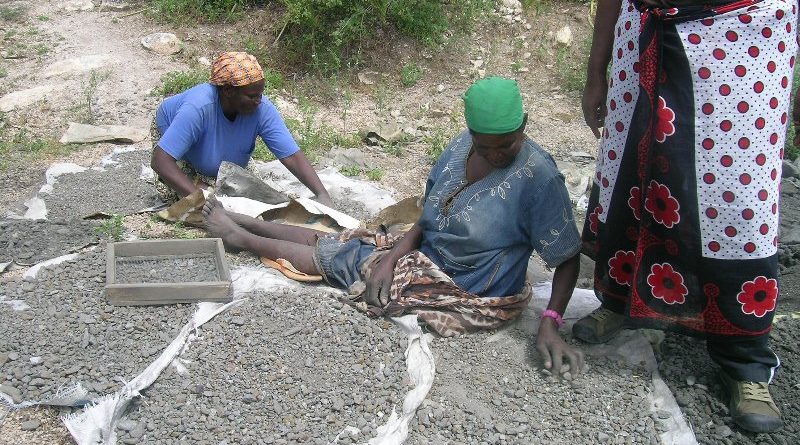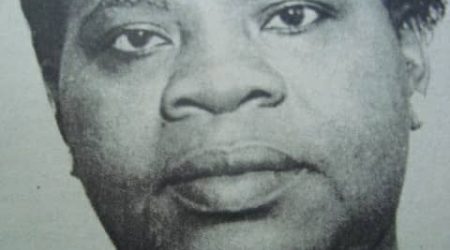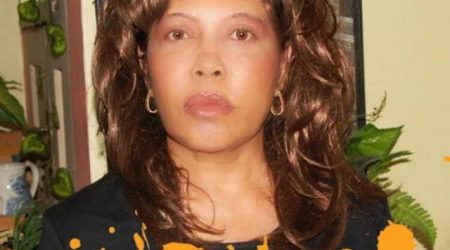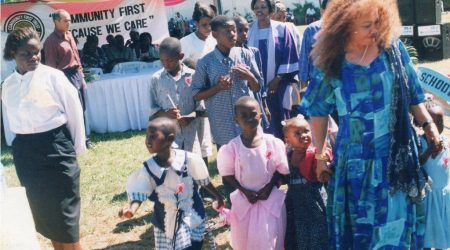VIOLENCE AGAINST OLDER PERSONS
Photos by :Charles Mustapha Kayoka
WE ASSUMED that violence against older persons, women mainly, is confined in Mwanza and Shinyanga regions in mainland Tanzania based on the number of elderly women killed after being accused of witchcraft practice.
Witchcraft practice is defined as causing famine, drought and foot and mouth disease among cattle. It is mainly associated with illness among small children for example rickets, diarrhea, and infant death which medical science would easily prove was caused by typhus fever or gastroenteritis which did not get the correct medical treatment.
But there has to be a ‘witch’ who causes such ‘misfortune’. The witch is invariably a woman, over the age of 65, who most likely owns a tract of land which a member of her family covets and so, the witch has to be disposed of.
Between 1999 and 2001, over 500 elderly women were murdered in Shinyanga and Mwanza regions, women who were accused and tried and judged and murdered for ‘practicing witchcraft’ (source: TAMWA and Police records).

In 2009, it was recorded that 60 elderly women were killed in Mwanza region after being accused, tried by secret Clan Tribunals, found guilty and killed by being hacked to death or by soaking them in kerosene and then burning them.
These are some of the cases recorded by the police after bodies or limbs of the women were found.
Mind you, the witch does not deserve burial nor funeral rites. She gets murdered and is left to be eaten by carrion birds or by hyena.
For nearly 12 years, we activists have focused our attention and energy on preventing and on stopping the killing of elderly women in Mwanza and Shinyanga regions. It hasn’t stopped, but it has gone underground.
Elderly women disappear and there is a communal conspiracy in the affected areas to ‘bury’ the secret of the disappearing women whose own families are the complainants, the judge and the jurists and who convene Clan Tribunals to pass the judgement of the death penalty.
After reaching the Verdict of ‘guilty’, they could decide to give the ‘accused’ a fast death without torture or they could give her a slow death of cutting her limb by limb while she is still alive. They might decide to burn her over a slow fire so that she feels the pain over a longer period. They might even decide she should be hanged from a tree so that villagers could spit on her dangling corpse.
Such is the savagery practiced in parts of Tanzania against elderly women who are invariably accused by a family member of being a witch and the Clan Tribunal is converged to decide her fate. The judgement is always ‘guilty of witchcraft’ and the sentence is always death. How the death sentence is carried out depends on the mood of the Tribunal.
From research conducted by the Tanzania Media Women Association TAMWA between 1999 and 2002 and subsequent research by HelpAge, we were able to conclude that the murders of elderly women are based on land ownership and ownership of other resources which leads to witch hunts so that members of the women’s families, oftentimes their own children, would access ownership of the land and the resources.
Women’s low status in the ethnic groups of those two regions, especially elderly women who are no longer productive or reproductive, makes it so much easier for their murders to get the Clan Tribunals to pass the verdict of guilty and the judgement of death.
This is happening in our country, over 50 years since independence from the colonial administration, and after ratifying international charters on human rights and the inclusion of the Bill of Rights in our Constitution!
Because the focus of Social Justice Defenders was confined to the killing of elderly women who are accused of witchcraft in Mwanza and Shinyanga regions for over 10 years, it was only recently, when we learnt that violence against older persons is taking place all over the country but it is a hidden secret.
A secret so much hidden that the Voices of Older Persons are not heard, let alone heeded over the practice of violence by their families, often their own children, who commit heinous acts against older persons in their families.
This writer was once invited to make a presentation on domestic violence in a women’s organization of a Tanzanian Asian community. After the presentation on spousal violence and during the tea break, I was approached by several elderly women who invited me to sit with them and share the plate of sandwich while being watched by the hawk eyes of several younger women.
We discussed the quality of the tea and sandwich and when I got up to collect my laptop and projector, one elderly woman gave me her hand to shake and I felt and heard the rustle of paper and then she disappeared. I put the piece of paper in my bag and read it when I got home.
This is what was written by hand in a school notebook paper, in a mixture of English, Swahili and some Gujerati words, ” please inform the authorities about the plight of older persons in our community. Our children have appropriated our pensions/homes/finances by making us sign transfer deeds under duress and with threats that we would be thrown out and live in the streets. Some of us were threatened with being incriminated in false crimes and of being put in jail if we do not sign over our properties or monies to our children. The note ended with a cry for help that they get beaten, denied food and medical treatment, are kept in isolation and some fear for their mental health and some for their lives”.

What was most surprising was the charade played out when I went to make my presentation. I had seen several elderly women wearing faded but clean clothes seated on one side, not talking, but also not being given attention by the younger women while the middle aged women looked anxious whenever they glanced at the elderly women. I had given it a passing thought that the elderly might be suffering from poor health.
What I read in the hand written note made me sit up. I realized the anxiety demonstrated by the middle aged women was brought by fear that I and my assistant might find out about the plight of older persons in their community.
A week later after I had made several enquiries, I made contact with two of the elderly women who had sent another note and a phone number through a domestic worker.
They had asked their children for permission to attend a religious ceremony in their temple and were accompanied by Asha, the domestic worker who showed a marked degree of empathy for the two elderly women.
The following is the narrative from the two women which was corroborated by Asha.
“There is elder abuse and mistreatment of older persons in most communities in urban areas. Out there, the authorities are not aware that it is taking place and society has not given older persons abuse the due recognition.
Older persons experience neglect, isolation, abandonment, social exclusion, denied medical treatment, denied respect and sometimes get physically beaten.
The oppression and violation is done by our own family members, our children, or our nephews and nieces and the community leaders are aware it is taking place but have not done anything to stop it.
We are denied the right to participate in community life, often kept indoors, lest we get support from activists and from the authorities.”
One of the ladies, Aunt Fatima said her son appropriated her property after the death of her husband and made her sign over all the properties to his name. Her daughter in law denies her medical treatment although Aunt Fatima suffers from diabetes. The daughter in law prescribes medicines for her and buys them over the counter.
The other, Mama Yasmin said she gets slapped by her son and his wife when she demands her husband’s pension. She said her granddaughter is kind and gives her food when her parents are away.
I made the attempt to inform the leaders of their community who were totally non committal and refused to take action.
That is when a group of social justice defenders decided to find out how widespread older persons abuse takes place and what we found is shocking.
Older persons abuse cuts across social, economic and ethnic lines and is not confined among Mwanza and Shinyanga regions but takes place in a vast number of families throughout the country.
The World Health Organization WHO has recognized the need to develop a global strategy for the abuse of older people and has conducted research in eight countries including Sweden, India and Kenya.
The ensuing Report has underlined physical abuse by inflicting pain and injury, psychological and emotional abuse which causes mental anguish, financial and material abuse through the illegal and improper exploitation of misuse of funds and other resources, sexual abuse of older persons by family members through non consensual contact, neglect, denial of dignity and respect, isolation and social exclusion.
The WHO has estimated that by 2025, the global population of older persons from the age of 60 and above will double to 1.2 billion.
The scenario should include the gender component. Women are the majority of older persons while 58 per cent are in the developing world.
In Tanzania, taking into account the cultural context and the low status of women, especially older women who are no longer productive and the fact that their reproductive years are over, the fate of older women is worse than that of older men, although reports from various ethnic groups in Tanzania have shown a marked degree of ageism even against older men and the traditional respect for elders, especially male elders has been grievously eroded.
Mzee Jonas, in his 70s and retired from being a school master says he gets more respect from his former pupils who he taught geography years ago, than from his own children.
His children either ignore him, or tell him to stop talking nonsense when he gives opinion on social issues.
He complained that they take away his pension and when the batteries of his radio stopped functioning, his children took away his radio.
He says that saddened him a lot and made him feel even more lonely because the radio kept him company.
“They laugh at me when I wear a tie to church. They do not understand that I want to look smart”, said Mzee Jonas.
A former pupil of his bought him another radio set and a batch of batteries to last for six months.
Older persons in Tanzania are at risk of being evacuated from their homes, and of having their properties grabbed by uncaring family members.
Mama Teresia, Mama Mwajuma and Mzee Issa say “It is the emotional abuse, the lack of respect, the neglect which is most painful”.
These are so firmly entrenched in the current cultural norms that few acknowledge their presence!
“Together We Can Make it Happen”
Leila Sheikh














Comments (3)
Leila thank you for the insight. This article holds invaluable information about our society. This is something we do not talk about but which i think we not only need to talk about but work together to turn around. I am opined to push for an all inclusive aporoach in sensitizing our people to fight this cancer.
I truly thank you.
Asante.
Together we can change the situation.
Eliminate violence against older persons.
Leila
Many congratulations Dada Leila
Indeed, you have done a lot, keep the spirit!
Patricia